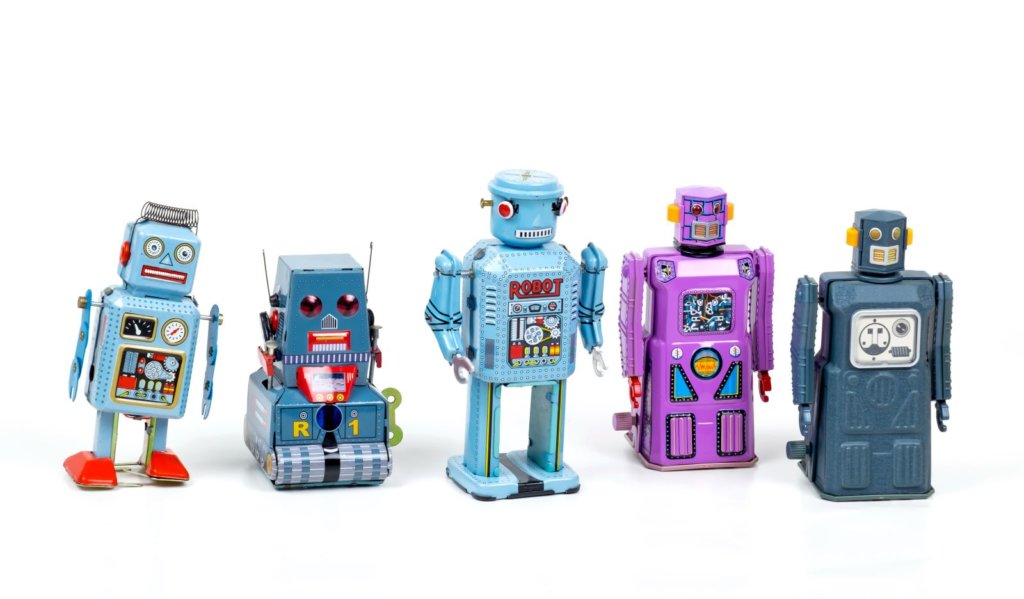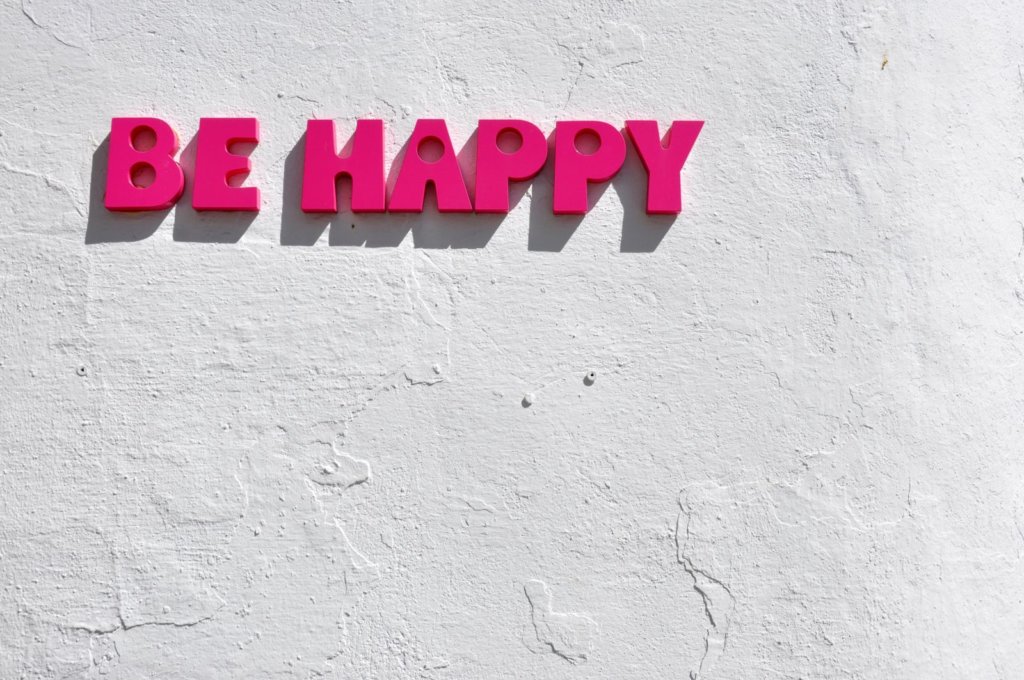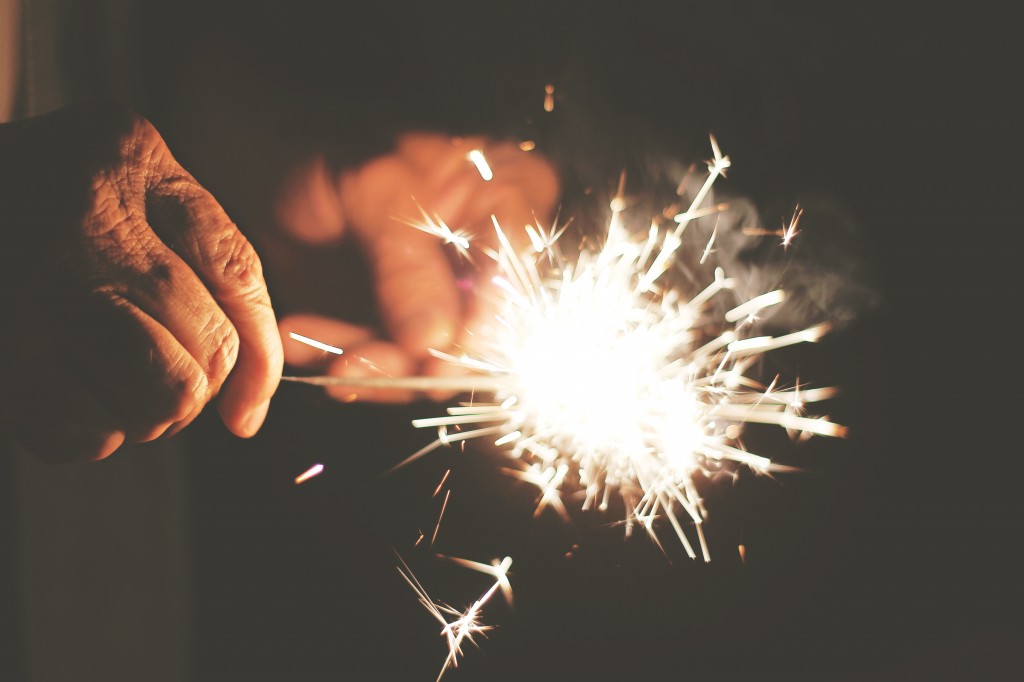Sometimes I have the expectation of myself that I’ll function like a robot. That no matter the circumstances, no matter how I’m feeling, I’ll be able to accomplish XYZ regardless. And if I’m not able to accomplish XYZ, then I beat myself up and make meaning from it like, “You’re so lazy.” This may sound silly, but what I often forget is that I’m a human and human beings are not robots. We aren’t able to show up the same way every day.
Something my therapist says is, “Everyone is doing the best they can at every moment and sometimes their best sucks.” Yep. I’m doing my best every day and sometimes my best sucks. Sometimes my best entails lying in bed under a pile of blankets watching terrible television because I can’t motivate myself to contact potential new clients. Sometimes my best means my bathroom mirror has flecks of toothpaste on it because cleaning it feels like too much effort.
I see this lack of respecting the natural ebb and flow of each person reflected in society. The other week I wrote about how people are turning into small children, throwing tantrums in grocery stores, and yes, it’s because many of us struggle with feeling our feelings, but I also think it’s because in the U.S. anyway, we forget we’re human and instead we’re being asked to function as if we aren’t. Your kids are home from school? You should be able to accomplish as much work as if they weren’t! Your colleague is out sick with Covid? You should still be able to meet that deadline! Um, no.

They’re cute, but let’s not aspire to be like them. Photo by Eric Krull on Unsplash
The expectation that life can or will continue as normal even when circumstances change is absurd. We are not robots and it’s not feasible to “power through” everything. Furthermore, maybe we’re not supposed to power through! Maybe we’re supposed to be smart, adaptable human beings that fluctuate day by day. This is something living with a chronic illness teaches me over and over again. Some days I can go for a swim, write for hours, clean my house, make dinner from scratch, and connect with friends. And other days I’m only capable of getting dressed and heating up a premade meal. Both happen and yet I beat myself up on the days I don’t have energy to do as much as I’d like. A lot of it has to do with internalized capitalism, but it’s also because of the expectations I place upon myself.
What if instead I treated myself with compassion and understanding? What if instead I recognized that at some point the bathroom mirror will get cleaned and inspiration will strike to contact potential new clients? Because that always happens. It reminds me of a quote from the late, great, Thích Nhat Hạnh who said, “No one is more worthy of your kindness and compassion than you are,” and also, “Real love means loving kindness and compassion, the kind of love that does not have any conditions.”
Real love for myself and others means recognizing we each have good days and bad days. It means understanding there’s a natural rhythm and cycle to life. It means acknowledging as much as society wants us to be robots, we aren’t. We’re human beings and human beings fluctuate, make mistakes, and have limitations. For better or for worse, we show up differently every day and not only is that OK, it’s natural, normal, and to be expected because again, we’re not robots.
I dream of a world where we treat ourselves with love and compassion. A world where we reduce the expectations we set for ourselves. A world where we understand our best will change from day to day. A world where we remember we aren’t robots.
Another world is not only possible, it’s probable.
Have you heard the expression, “Expectations are premeditated resentments?” I wouldn’t say that’s wholly true for me because my expectations aren’t about other people, but they have certainly been premeditated disappointments. For instance, I woke up on the morning of my most recent birthday and cried because I’m not at all where I thought I’d be at this age. Yes, the big things like married, but also I thought by this age I’d be living in a more spacious apartment and have signed a literary agent. But I haven’t.
Every year I inflict this kind of disappointment on myself. I make a goal where I say, “By this time next year I’ll ______.” And then inevitably what I set out to achieve doesn’t come to pass because I’m not in control of every aspect of my life. If we’re using the theater metaphor that all the world’s a stage and we’re merely players upon it, I’m instead operating under the assumption I’m the director. As the director, I have a say in what happens upon the stage, but as much as I’d like to be the director, I was cast as an actor. And that means it doesn’t make sense to have expectations for how my future will unfold.

I would like to follow this command. Photo by Alex Block on Unsplash
Having a goal is great, but setting a timeline is not. How can I possibly predict what will happen in the future? I can’t. That’s also the chief complaint of every crowd-funded campaign I’ve ever backed. The creator sets up a timeline and says, “You’ll receive your water pitcher in six months,” or whatever and when that time comes and goes, people get angry and impatient. The timing is almost always off because the creator ran into unforeseen circumstances. It’s the same for me — I’m forever running into unforeseen circumstances.
What if instead of giving goals a deadline, I work toward them and just let my life unfold? What if instead I accepted and enjoyed what’s here, now? Jodi Picoult speaks to this in her novel Nineteen Minutes when she writes, “There were two ways to be happy: improve your reality, or lower your expectations.”
I already work incredibly hard to improve my reality so maybe now is the time to lower my expectations, or better yet, not have any at all. What’s funny is when I googled how to do that, much of the search results focused on lowering expectations in regards to other people and not much about lowering the expectations a person has for themselves. I suspect that because in the U.S. anyway, we have high expectations for ourselves. We believe if we dream it, we can achieve it and on our timeline to boot. You just have to think positively! Create a vision board! Hire a life coach! That all has a place, but so does something every spiritual teacher talks about: surrender.
My spiritual teacher says, “Human beings and other created beings perform a multitude of actions. The ultimate action, however, is … total surrender.” Total surrender means aligning my will with higher power’s will. Total surrender means recognizing I am an actor in this world, not the director. Total surrender means no longer placing expectations upon myself for when something will be accomplished because that only sets me up for disappointment and this year my goal instead is to be happy.
I dream of a world where we remember the recipe for happiness is to improve our reality or lower our expectations. A world where we remember we are the actors upon the stage of life and not the directors. A world where we understand in order to truly feel happy, we have to let go and enjoy what arises when it arises.
Another world is not only possible, it’s probable.
Audio at the bottom.
In about a month I’ll be 30. (One month!) Where I come from, i.e., the South, 30 means you’re married with a child or two and own a house. That is decidedly not my reality; in fact, I’m at the complete opposite end of the spectrum – single, childless, and not even an apartment, much less a house. This is not what I anticipated my life looking like. This is not what I expected for myself.
In October, a friend of mine turned 30 and when I voiced my own apprehensions about turning the big 3-0, she said, “Is life really so bad? Don’t you think you’ve lived well? Aren’t you pleased with the choices you’ve made?” I wouldn’t say I’m pleased, but I would say I think I’ve done the best I could with what I’ve been given.
It’s painful to grieve for the future that could have been, the Ghost of Christmas Future, if you will, but while I don’t have the house, the kids, or the partner, I still count myself blessed. I’m well-read, well-traveled, and well-loved. By that I mean I am loved by many near and far. I belong to several communities and each of those communities is filled with loving, generous people, for which I’m grateful. Their kindness has brought me to tears over and over again.
I also think about something another friend of mine said to me in college. When I told her someone called me nontraditional, she said, “According to whose traditions?” I love that because she’s right. Whose traditions am I adopting here? Whose expectations am I foisting upon myself? Is anyone except for me judging and criticizing my life for not looking a certain way? To be honest, I think most people are too consumed with living their lives to judge mine.
I also think about a passage that has resonance for me: “[M]y serenity is inversely proportional to my expectations. The higher my expectations … the lower is my serenity. I can watch my serenity level rise when I discard my expectations.” I’ve had many expectations for my life, how it will go, what I expect will happen, and all it has accomplished is to make me sad or frustrated. Perhaps it’s time to discard the expectations and instead trust that as someone said to me a decade ago, I’m nontraditional, and that means I get to make my own traditions.
This post is all about me turning 30, but I hope you find some relevance for your own life. Things rarely work out the way we expect or plan and when that happens, I hope you’ll join me in yelling, “Plot twist!” After all, what great adventure doesn’t have a few surprises?
I dream of a world where we discard our expectations and make our own traditions. A world where we realize our lives may not follow the path we had planned, but that doesn’t mean it’s a bad thing. A world where we accept the things we cannot change, have the courage to change the things we can, and the wisdom to know the difference.
Another world is not only possible, it’s probable.
